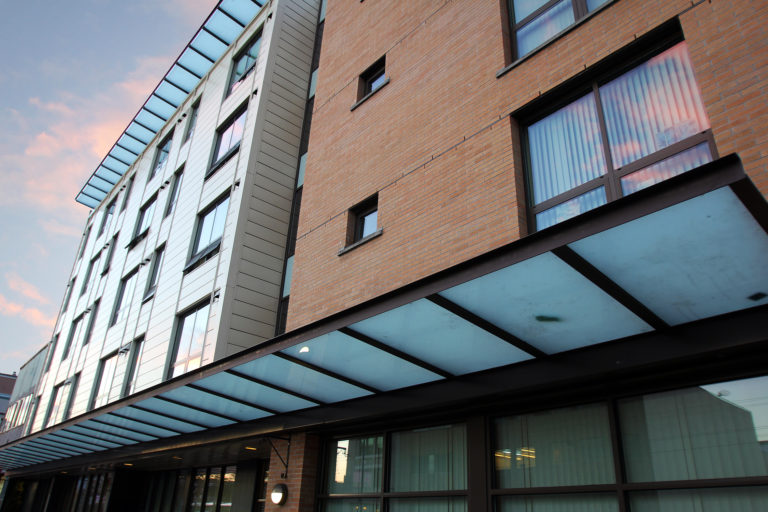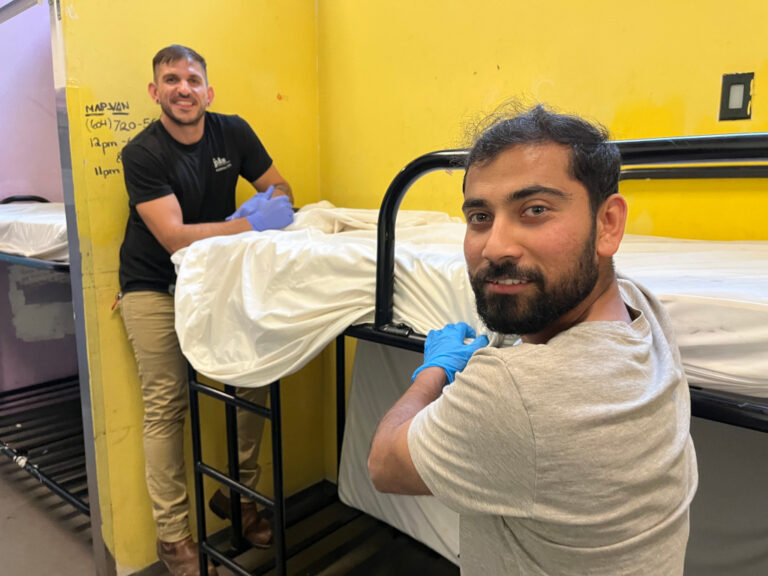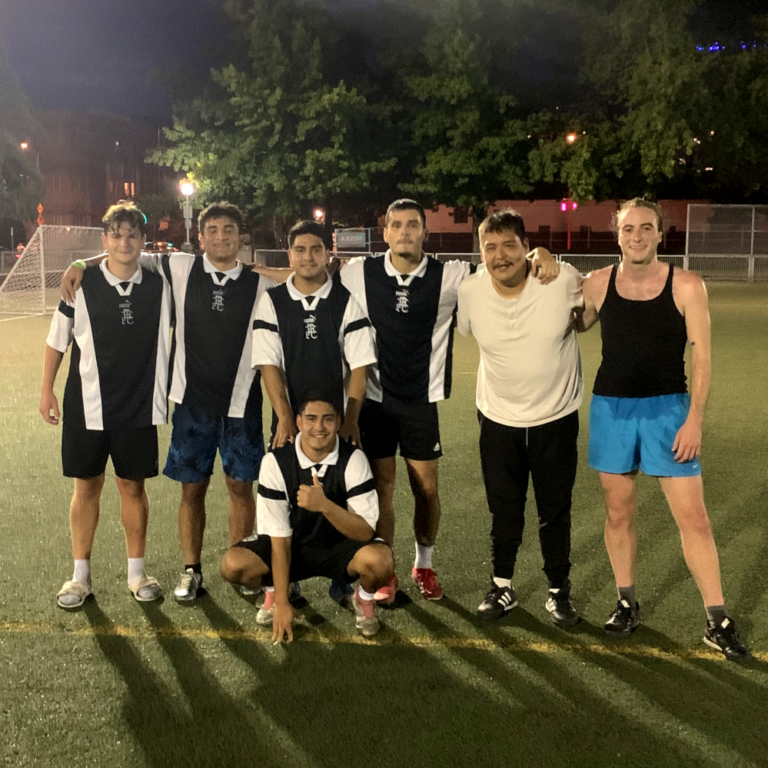The communities we serve suffer grave health inequities. And since we started in 1993, when Vancouver was tracking some of the highest HIV infection rates in world, we have been responding on every front.
Today there are overlapping public health crises that fall disproportionately on our communities, those already at heightened risk of poor health outcomes due to poverty, dislocation and other social determinants of health. Every component of our operations addresses the health of individuals and the community, and healthcare is at the heart of our work.
PHS operates the drop-in Columbia St. Community Clinic and various primary care clinics embedded in its supportive housing units, in addition to leading-edge outpatient programs.
Thanks to the upcoming launch of the safe supply project and general ongoing growth we are looking for more Licensed Practical Nurses (LPNs). (Full-time and casual positions. Salary: $31.65 per hour. No nights. Info on the Careers page.)
Working at full scope
Our nurses have a very dynamic practice and probably the number one misperception is that practice within an organization like PHS is strictly a niche area.
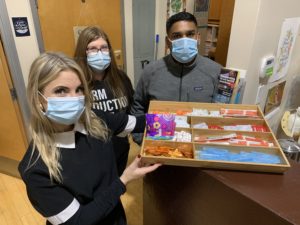 “Harm reduction is obviously a big part of what we do at PHS, but primary care is a big piece of our nursing practice,” said PHS Nurse Manager Sarah Foster. “There’s a lot of clinical skills necessary to practice here.
“Harm reduction is obviously a big part of what we do at PHS, but primary care is a big piece of our nursing practice,” said PHS Nurse Manager Sarah Foster. “There’s a lot of clinical skills necessary to practice here.
“People might think they could end up losing skills working at PHS, but that’s not the case at all. Here, LPNs work to their full scope.”
“There’s room to grow at PHS, with opportunities to be part of ground-breaking new treatment programs that you would not necessarily have as an LPN in other settings.”
In day-to-day terms, this frequently involves developing long-term, trusting relationships with patients in order to identify critical issues to be brought back to the healthcare team, and then working on care planning.
“This work is not for everyone,” said Sarah. “You need empathy and compassion to work here”
“You have to approach this work through a trauma-informed lens, to better understand where people are coming from, and the challenges and struggles that they face on a daily basis.”
Research shows a clear link between trauma and drug use. Adverse childhood experiences – such as abuse and neglect – and post-traumatic stress disorder are comorbid with substance use disorder.
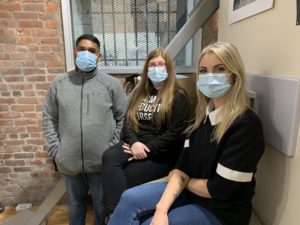 In addition, childhoodtrauma also makes an individual susceptible to later cognitive deficits and psychiatric illnesses, including schizophrenia, major depression and bipolar disorder.
In addition, childhoodtrauma also makes an individual susceptible to later cognitive deficits and psychiatric illnesses, including schizophrenia, major depression and bipolar disorder.
Trauma-informed care means treating the person, not just the symptoms associated with substance use. It emphasises creating physical, psychological, and emotional safety so that patients can rebuild a sense of control and empowerment. In other words, meeting people where they are at.
“There’s opportunities for really creative care planning,” said Sarah. “You have to be able to think outside of the box to meet people’s needs.
“At PHS we create longitudinal relationships – I’ve known some people for 10-plus years. We get an insight into people’s lives and it helps when providing care.”
This all takes place within a team environment. It’s sometimes chaotic, working in a fast-moving environment, but never dull.
Collaborative environment
“Our physicians really respect the nurses,” she said. “They ask for our input and feedback. It’s a very collaborative environment. You learn so much working side by side with our physicians.
“I love working at PHS. I’ve never had a job I cared so deeply about. The work we do really makes a difference in people’s lives.”
The reward comes in building trust with people so that therapeutic relationships can grow.
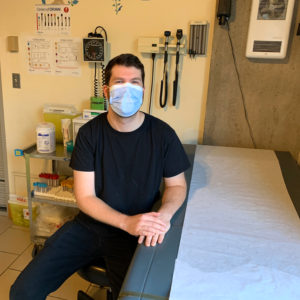 Clinical Resource Nurse Tim Parizeau, a Registered Nurse employed by PHS since August 2016, said he feels valued by leadership.
Clinical Resource Nurse Tim Parizeau, a Registered Nurse employed by PHS since August 2016, said he feels valued by leadership.
“This is a great place to grow,” he said. “I can see myself staying around long-term.”
Based at the Portland Hotel, he also regularly visits six additional PHS sites to support nursing staff there.
His job revolves around triaging residents’ health concerns – there’s a lot of wound care, especially lower leg infections – and supporting marginalized people toaccess specialist care.
“I try to help people be as healthy as they can be within the context of their own living situation, and with respect for their autonomy,” he said. “I encourage people to take ownership of their own health rather than living with the consequences.
“I never come in with the motivation of stopping people from taking drugs. There are obviously health consequences to drug use, but my first concern is making it safer.
“It’s different to the traditional healthcare model in that we’re more relationship-based and give people more space to be themselves.”*
- Interested in applying for healthcare or other positions at PHS? Check out the job description.

